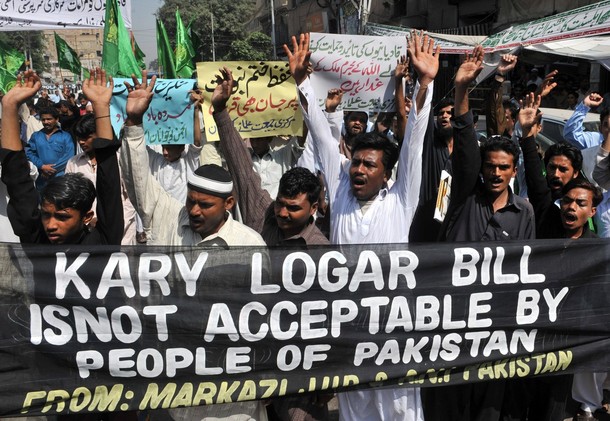
For more than 60 years the U.S.-Pakistani relationship has veered between despair and euphoria. In a very social sense, the two states could be characterized as an aging married couple occupying very distant parts of a large, deteriorating house whose plumbing, electrics and phone systems are in disrepair and who are at a loss on how to interact to fix both their relationship and their living conditions. In essence, something between a marriage counselor and a plumber is sorely needed to improve this complex relationship.
Culture, politics, bureaucracies and history have conspired to confound the Pakistani-American relationship. The Pakistanis rightly fear that the past conduct of the United States in cutting Pakistan loose overrides current promises for a long-term commitment. Fiercely nationalistic, the presence of foreign troops on Pakistani soil is unacceptable to that public. Yet without greater U.S. support and some presence, Pakistan will be hard pressed to defeat the insurgency that is raging. And, of course, Afghanistan and India cannot be separated from Pakistan’s security and future.
On the U.S. side, frustration in dealing with Pakistan is building within the Obama administration. President Obama has offered Pakistan if not a blank check, surely the promise of far more assistance in turn for a new strategic relationship with the United States. That relationship clearly includes a more aggressive posture against the Afghan Taliban and Pakistani indigenous terrorist organizations that target India. But Pakistan has not agreed to a new strategic framework. And Pakistanis further complain that the United States has been agonizingly slow in making good on reimbursement payments for the Pakistani army running into the billions of dollars and transferring needed military equipment from helicopters to armored vests.
Americans shake their heads over difficulties in Pakistan that prevent U.S. support from being delivered. One small example: The U.S. Embassy in Islamabad has $100 million for improving Pakistan police that requires a Pakistani plan for using that money. So far, no plan has been written. And for reasons that demonstrate a breakdown in communications, the United States and Pakistan are at loggerheads over 278 visa applications for U.S. military personnel essential to expediting the delivery of support that have not been granted so far. And of course American intelligence is still very suspicious of Pakistan’s Inter-Services-Intelligence agency.
Can these obstacles and roadblocks to improving Pakistan’s security and safety in partnership with the United States be eliminated or marginalized, or will the relationship be in a state of permanent friction and tension? National security adviser James Jones is in Islamabad this week to make another attempt to improve matters. But what is also needed is a combination of marriage counselor and plumber that can deal with putting in place an acceptable new strategic framework and fix or construct means of communications and interactions to deal with the myriad of issues that frustrate the Pakistani-American relationship.
For both the George W. Bush and Barack Obama administrations, the respective heads of state have never held what can be called serious strategic discussions over agreed intentions and actions. The United States has largely asked or informed the Pakistanis of what it was proposing to do. Both sides must, as Roosevelt and Churchill did during World War II, interact and conclude a mutually agreed to strategic framework and do so quickly.
At the operational level, a means to deal with disagreements and delivery of support from arms to money to training must be put in place. The basic solution is to have a joint U.S.-Pakistani commission or group that will examine each individual problem or hard spot and work out specific solutions for each. This group should include individuals of recognized gravitas and experience from both countries such as current and former Sens. John Kerry and Chuck Hagel or Gen. Colin Powell, and on the Pakistan side such as former Army Chief of Staff and Ambassador to the United States Gen. Jehangir Karamat or former national security adviser and Ambassador to the United States Gen. Mahmud Duranni. Whether this group would work with the respective embassies in both states or through the U.S. special envoy or a different venue can be determined.
The United States clearly recognizes that Pakistan is the strategic center of gravity for the region and for success in Afghanistan. The Pakistani government including the army recognizes that the insurgency in Pakistan is existential in nature and at least equals and probably surpasses India as a threat to that nation. Unfortunately, both sides have struggled in helping each other and have often put in place roadblocks harmful to the collective good.
Metaphors are often inappropriate. But this in a sense is a marriage that needs help. Bring on a counselor and a plumber to make things better.
Harlan Ullman is senior adviser at the Atlantic Council and chairman of the Killowen Group that advises leaders of government and business. This column was syndicated by UPI. Photo credit: Getty Images.
Image: pakistan-protest-kerry-lugar.jpg
